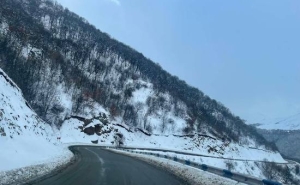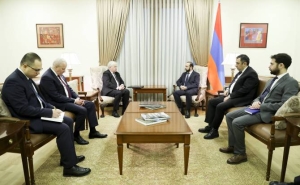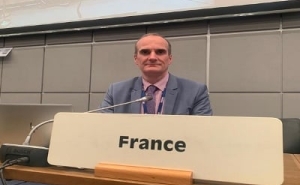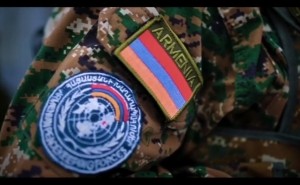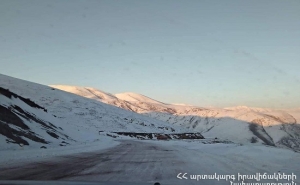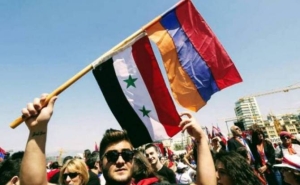The Works of Armenian Classics Are Translated into Hindi: Hindi Literary Scholar (EXCLUSIVE)
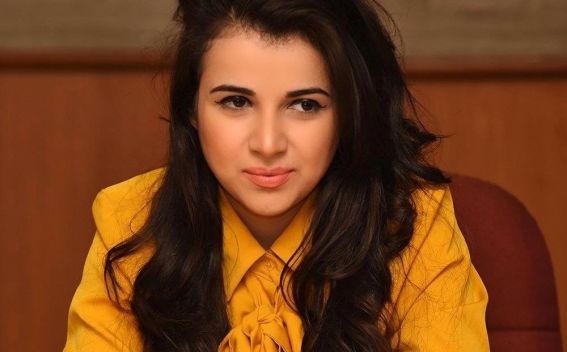
"Armedia" IAA presents an exclusive interview with Mane Mkrtchyan, Hindi literary scholar, PhD student at Jawaharlal Nehru University (New Delhi).
- How did it happen that you decided to study Hindi, to study Indian literature?
- The trip to India was my mom's idea. She advised to do such research, which has been done very rarely in Armenia. It's about Hindi, Indian literature and culture. After doing Bachelor's and Master's Degrees in Delhi University, I continued my studies in M.Phil, and now I am doing PhD at Jawaharlal Nehru University under the ICCR program of the Indian government. The theme of my Ph.D. thesis is: “Awakening of Armenian and Indian new literature in the early 19th century and their comparative analysis”. I think that this large-scale study will help in bringing the cultures of both countries closer.
 - Now more than 30 Armenians live in Delhi, there are Armenians also in other cities of India. What is being done to unite local Armenians, to present Armenia to the Indian society?
- Now more than 30 Armenians live in Delhi, there are Armenians also in other cities of India. What is being done to unite local Armenians, to present Armenia to the Indian society?
- Over the years, in parallel with the increase in the number of Armenians, the idea of creating an Armenian organization in India has become more real. And in 2015, with the help of our like-minded friends, we opened an Armenian Cultural Center in Delhi. The President of the Center is Gayaneh Movsisyan, who until recently was a cardiologist at the clinic of the President of India, now she works in a private clinic. Our vice-president is famous doctor-professor Mohsin Wali, he is one of the most active members of the Center and always gives us useful advice. Another vice-president is famous Indian writer Mrs. Suman Keshari, the main adviser is my mother, Susanna Grigoryan, General Secretary is Nareh Mkrtchyan.
During the two years of the Center's existence, we organized official events dedicated to the 25th anniversary of the Independence of the Republic of Armenia, the 25th anniversary of the diplomatic relations between Armenia and India, the 40th anniversary of the visit of Indian Prime Minister Indira Gandhi to Armenia, the 100th anniversary of the Armenian Genocide, International Women's Day, at the Indian Council of Cultural Relations (ICCR) we organized a large photo-exhibition, presenting the culture and history of Armenia. I will say that the Armenian Embassy, in the person of the Extraordinary and Plenipotentiary Ambassador of Armenia to India Armen Martirosyan, always supports us in any matter.
In addition, in various cases we also organize gatherings of the Armenian communities, where our Indian sons-in-law and children are also present. We also plan to cretae something like a Sunday school, where our Armenian children can communicate with each other, learn Armenian songs and dances. It remains only to decide the issue with the space of the school.
 - What is being done in distant India to present issue of the Armenian Genocide to Indian society?
- What is being done in distant India to present issue of the Armenian Genocide to Indian society?
- For several years at the Nehru University, which is the largest university in South Asia and is known for its active intellectual potential, we organize the burning of candles in memory of the innocent victims of the Genocide, as well as a seminar during which we tell about this tragic page of our people, condemn it, and also show the rebirth of our nation. All this is of great interest to students and faculty.
In addition, in the literary and political journal "HANS", which is published in Hindi language since 1936, in the April issue of 2017, the story of Mushegh Galshoyan "Call" was published in my translation, which is dedicated to the Genocide. After the publication, the story had such a resonance that the editor-in-chief of the magazine Sanjay Sahai decided that the editorial of the next, May issue would be devoted to the Armenian Genocide, which also aroused great interest.
With writer Suman Keshari for the last 4 years, we are actively working on one unique book. It is fully dedicated to the Armenian Genocide. The book consists of two parts. The first part is the translation of the works of Armenian writers into Hindi (which I do) and the second part - studies of various experts of the world (also Turks) on genocide, interviews with different specialists. By the way, Mrs. Keshari at the invitation of the Armenian government in 2015 attended events dedicated to the 100th anniversary of the Armenian Genocide, as well as the Aurora awards ceremony.
- Which authors are included in the book?
- The book includes excerpts from the famous works of Ruben Sevak, Daniel Varuzhan, Siamanto, Paruyr Sevak, Hovhannes Tumanyan, Hovhannes Shiraz, Hamastegh. Now we are working on translating a short excerpt from Franz Werfel's novel "40 Days of Musa Dag".
- When will the book be published?
- The book should have been published long time ago, but all the time we found new important materials that it was impossible not to include, and eventually it turned out to be quite a big book. We have decided to complete the book by September.
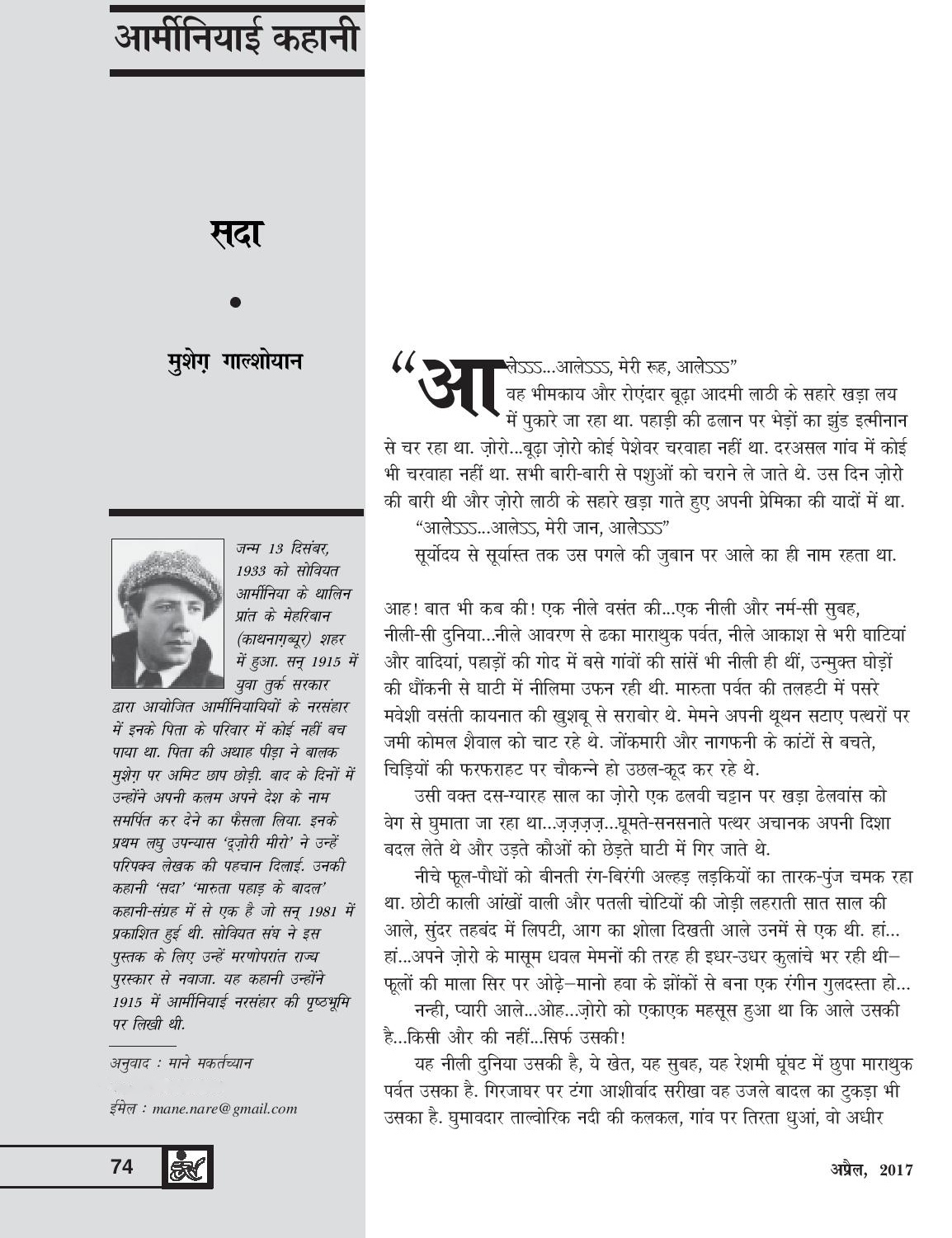 - What else are you working on?
- What else are you working on?
- Recently, Delhi University contacted our Embassy. They plan to publish in Hindi language a series of classics of prose from different countries of the world. From each country - one writer, one volume and about 100 pages. We chose our classic Hovhannes Tumanyan, especially because next year marks the 150th anniversary of his birth. I will translate into Hindi his famous stories, among them: "Gikor", "Honor of the Poor", "Stone Bath of Neso", etc.
- This is a very serious, responsible and difficult work, and very important, in terms of presenting our famous writer to the Indian society. In conclusion, tell me, what does India teach?
- First of all, India teaches tolerance (which, unfortunately, is very little in Armenia) and secularism, that is, acceptance of all religions, all people as they are. There is one very famous expression in Sanskrit - Vasudhaiva kutumbakam, ie. the whole world is one family. People who belong to different races, religions, mentality, being very different, at the same time are members of the same family - our planet: unity in diversity...
Interviewed by Naira S. Mkrtchyan
New Delhi
-
 17:08
17:08The regular session of the Anti-corruption Policy Council takes place in Jermuk
-
 15:05
15:05The Prime Minister sends congratulatory messages to the supreme leader of Iran and the President of Iran
-
 11:11
11:11Armenia sends earthquake aid to Turkey
-
 10:43
10:43Commemoration of the Pontiff St. Sahak Partev
-
 09:16
09:16Some roads are closed and difficult to pass in Armenia
-
 19:55
19:55Phone conversation of the Foreign Minister of Armenia with the U.S. Assistant Secretary of State for European and Eurasian Affairs
-
 18:30
18:30Prime Minister Pashinyan and President Khachaturyan meet
-
 18:20
18:20Ararat Mirzoyan with Co-Chairman of the OSCE Minsk Group of France Brice Roquefeuil
-
 17:01
17:01Humans could land on Mars within 10 years, Musk predicts
-
 16:45
16:45France, US urge 'immediate' end to Nagorno Karabakh blockade
-
 16:01
16:01Blockaded Nagorno Karabakh launches fundraiser to support quake-hit Syria
-
 15:59
15:59Earthquake death toll in Turkey rises to 18,342
-
 15:43
15:43Ararat Mirzoyan Held a Telephone Conversation with Sergey Lavrov
-
 15:06
15:06French president rules out fighter jet supplies to Ukraine in near future
-
 14:47
14:475 Day Weather Forecast in Armenia
-
 14:44
14:44President Vahagn Khachaturyan wrote a note in the book of condolences opened in the Embassy of Syria in Armenia
-
 14:20
14:20Azerbaijan’s provocations impede establishment of peace and stability – Armenian FM tells Russian Co-Chair of OSCE MG
-
 12:57
12:57France representation to OSCE: Paris calls on Azerbaijan to restore freedom of movement through Lachin corridor
-
 11:40
11:40Command of Kosovo forces highly appreciated preparation of Armenian peacekeepers
-
 10:16
10:16The United States withdrew from sanctions against Syria for six months the provision of assistance after the earthquake
day
week
month
Humidity: 51%
Wind: 3.09 km/h


